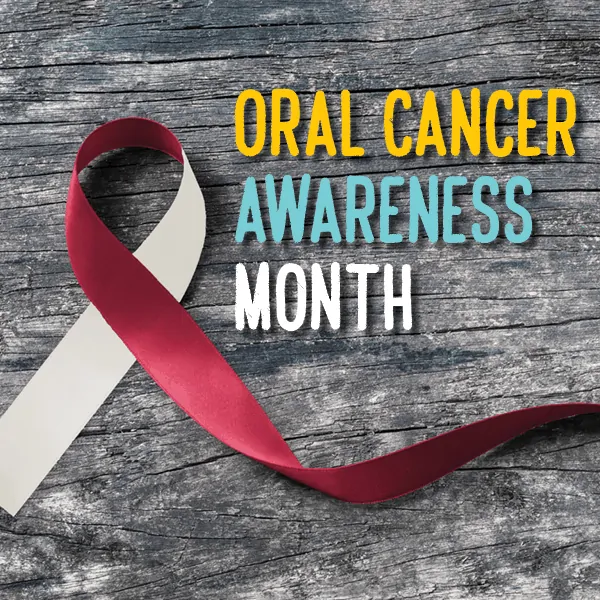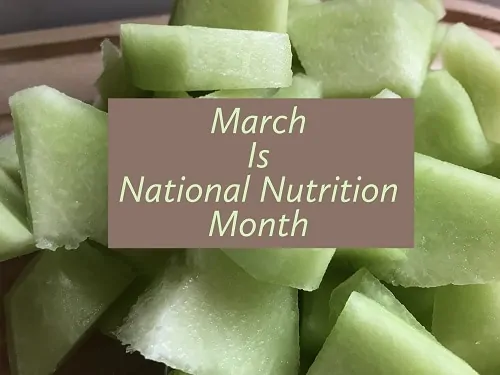Blog
This Month We’re Celebrating Women’s Dental Health

May is the month when we take a Sunday to thank our moms for all that they do for us. At our dental office in Douglasville, we want to take the whole month and dedicate it to the women of our practice and our community by talking a bit about the unique oral health concerns that affect women throughout every stage of their lives.
Hormonal Changes Affect Oral Health
The truth is that since women experience fluctuations in hormone levels at different stages of life, they also have different dental concerns than men. Whenever hormones change, usually during puberty, menstruation, pregnancy, and menopause, other things in the body also change that cause women to be at increased risk for gum disease and other oral health problems.
Puberty
Between the ages of 8 and 14, girls will start to go through puberty and experience changes in their body. One of the biggest changes will be with their hormones. While this can affect emotions and mood, this hormonal roller coaster can also influence oral health. Increases in estrogen and progesterone boost blood flow to the mouth and particularly to the gums. Because of this, many girls will experience red, swollen gums that may even bleed while brushing their teeth. It’s important to maintain a good oral health routine of brushing twice a day and flossing once a day to help keep gums healthy.
Menstruation
Once a woman has her first period, hormones continue to rise and fall during her menstrual cycle. She may still experience puffy gums that bleed a few days before her period. During this same time it’s also common for a canker sore or two to pop up, which usually disappear in a few days. Changes in hormones may also lead to dry mouth which increases the risk for decay, cavities, and bad breath.
Pregnancy
Dental care is particularly important during pregnancy. In fact, poor oral health throughout a pregnancy may lead to a premature birth, gestational diabetes, or preeclampsia. Gingivitis is also common for pregnant women, again thanks to hormonal changes. Besides brushing and flossing daily, pregnant women should visit their dentist in Douglasville some time during the second trimester.
Menopause
Menopause usually occurs between the ages of 45 and 55, but can happen earlier or later. Whenever a woman goes through menopause, estrogen decreases and increases the risk of bone loss and osteoporosis. Bone loss is concerning for dental health since it can affect the jaw bone, which holds teeth in place. As jaw bone deteriorates, there’s an increased risk for tooth loss. However, thanks to advancements in dental technology, these teeth can be replaced by either dentures or dental implants.
Our Douglasville dental office is here to help all the women (and men!) of our community get and keep their mouths healthy, no matter what changes their bodies go through. We’re always welcoming new patients, so schedule an appointment with us today!
Why You Should Always Wear a Mouthguard When Playing Sports

April is recognized as National Facial Protection Month and serves to promote the importance of wearing proper mouth protection during sports. At our dental office in Douglasville, this is a topic we want to talk about in hopes that we can help guard our patients’ smiles from the dangers of contact sports. Join us as we cover some of the most important reasons you should always wear a mouthguard when hitting the court or field.
Sport Injuries by the Numbers
Participating in sports can benefit us in a lot of ways. Sports help keep us active and healthy, and they build strong team and communication skills. But there’s always the risk of injury. While injuries can affect even the best, most experienced athletes, an alarming amount of sports injuries happen to children. In fact, a study published by Johns Hopkins concluded that over 3.5 million kids under age 15 sustain an injury while playing a sport or participating in a similar activity. Of course a lot of sport injuries result in a sprain, strain, or even broken bones, but what’s most concerning to your dentist in Douglasville is that many of these injuries are to the face or head.
Who Has the Biggest Risk?
Even though any athlete can get hurt, there are some sports that put you at increased risk for a mouth injury. Any contact sport such as football, soccer, or basketball poses the biggest chance for a mouth injury, but which sport sees the most? The answer may surprise you. According to a study published by dentalcare.com and two research dentists, basketball has the highest mouth injury rate in both men and women. This could be in part to the fact that a mouthguard is not always required. However, the American Dental Association recommends wearing a mouthguard, even if it’s not in the rulebook. Besides protecting teeth against chips, breaks, or being totally knocked out, mouthguards can help reduce the risk of concussion, too.
Different Types of Mouthguards
There are typically two types of mouthguards — the boil-and-bite variety found in sporting goods stores and custom-made mouthguards created by a dentist. The stock mouthguards you can buy at stores are better than nothing, but they’re usually uncomfortable, don’t fit as snugly as they should, and oftentimes spend more time being chewed on than protecting teeth. The best way to protect teeth while playing sports is by getting a custom-made mouthguard. These professional-grade sports mouthguards are molded to fit around each and every tooth and are really comfortable. Speaking with them in is easier than a boil-and-bite guard, too.
Before you or your child gears up for a sporting event, make sure you have a well fitting mouthguard and be committed to wearing it every time for the whole game. If you want the ultimate in mouth protection, we welcome you to call our Douglasville dental office to discuss the best sports mouthguard for you.
How a Dental Checkup Can Save Your Life

Oral cancer diagnosis is on the rise with an estimated 51,540 new cases expected in 2018. At our dental office in Douglasville, we understand how serious this life threatening disease is. In fact, the American Cancer Society projects that over 10,000 people in the United States will die from it this year. However, while oral cancer can lead to death, the five-year survival rate is 65%. Part of what contributes to this relatively high chance of survival is due to early diagnosis. During this Oral Cancer Awareness Month, we’d like to help raise awareness by sharing the importance of regular dental checkups that just might save your life.
Early Diagnosis Means Higher Chance of Survival
Oral cancer can be treated successfully. But the chance of survival greatly increases if the disease is caught in the early stages before the cancer has a chance to spread. According to the American Cancer Society, survival rates for different types of oral cancer vary depending on how much time its had to progress. They classify these progressions into three stages including:
- Local – Meaning the cancer has only affect the area which it started.
- Regional – This term is used for cancer that has spread to other tissues close by the original infection site.
- Distant – Cancer classified as distant has spread even farther to more areas of the body.
Some of the most common areas affected by oral cancer, along with their various five-year survival rates based on the stages listed above can be found in the table below, courtesy of the American Cancer Society.
| Lip | Tongue | Floor of the Mouth | |
| Local | 93% | 78% | 75% |
| Regional | 48% | 63% | 38% |
| Distant | 52% | 36% | 20% |
How To Catch Oral Cancer Early
The most effective way to diagnose oral cancer early when treatment is more successful is by recognizing the signs. Some of the most common signs of oral cancer include:
- A sore in the mouth that doesn’t go away and bleeds easily
- A chronic white or red area
- Difficulty swallowing, chewing, or moving the tongue
- A lump on the cheek, tongue, or throat
- Coughing up blood
Additionally, seeing your dentist in Douglasville at least every six months can proactively monitor your overall oral health, including screening for oral cancer. Your dental team is trained to look for any areas that may be concerning. Regular dental checkups can help catch oral cancer early so that you can get treatment as soon as possible in order to increase your chances of beating it.
If you notice any potential problem areas or it’s just been awhile since you’ve been to the dentist, we’re always welcoming new patients and encourage you to call our Douglasville dental office to schedule an appointment. We’re dedicated to protecting your smile and your overall health.
Is Your Family Getting Enough Calcium?

Calcium is most commonly noted as being a crucial mineral for strong bone development. However, at our dental office in Douglasville we also know that calcium is an essential part of building strong and healthy teeth. But just how much calcium does your family need?
The Importance of Calcium
Before we dive into how much calcium each member of your family needs, let’s take a quick look at why a steady intake of it is important. Our bodies need calcium in order to function properly, and our systems will pull what they need out of what we have in our bones. In fact, the calcium found in bones and teeth is repeatedly removed, and it needs to be replaced. This is where eating a diet high in calcium helps replenish what’s lost. This is particularly important in young children when bones are developing and growing, and for older adults.
Calcium Doesn’t Stand Alone
We wouldn’t be giving you great advice if we didn’t tell you that a solid calcium intake is only half the battle. In order for the calcium to be absorbed and aid in tooth and bone development and strength, it needs vitamin D. Vitamin D is an essential vitamin, meaning your body relies on it to function. Make sure your family isn’t only eating a diet rich in calcium, but also vitamin D. Some foods that can help increase levels of vitamin D include:
- Dairy products
- Egg Yolks
- Fish such as salmon and herring
How Much Calcium is Enough?
The appropriate amount of calcium varies depending on age and gender. Here are the recommended daily doses according to the Food and Nutrition Board (FNB).
- 0-6 months = 200 mg
- 7-12 months = 260 mg
- 1-3 years = 700 mg
- 4-8 years = 1,000 mg
- 9-18 years = 1,300 mg
- 19-50 years = 1,000 mg
- 51-70 years = 1,000 mg for males, 1,200 mg for females
- 71+ years = 1,200 mg
Foods High in Calcium
When looking for calcium-rich foods, your Douglasville dentist wants you to consider going outside of the dairy aisle. There are plenty of non-dairy foods that pack a mean calcium punch including:
- Sardines
- Soymilk
- Orange juice
- Calcium-fortified cereal
Remember, besides eating a diet high in calcium, it’s also important to eat a variety of food groups at every meal.
At our Douglasville dental office, we’re in the business of taking care of your family’s smiles. One way to ensure a lifetime of strong, beautiful teeth is to get the recommended daily amount of vitamin D and calcium. And of course, we always recommend proper brushing and regular dental visits.
Good for the Body, Good for the Mouth

What we put into our bodies can certainly affect how we feel and how healthy we are. But eating the right foods to fuel your body goes beyond enhancing overall health. During this National Nutrition Month, your Douglasville dentist wants to let all of our patients know how proper nutrition can also benefit your oral health.
What Exactly is Proper Nutrition?
The basics of eating right include reducing your fat and sugar intake while upping the amount of nutrient rich foods. But how much of what things should you be eating? That’s where things aren’t so simple. Ever since the original Food Pyramid Guide was published by the United States Department of Agriculture (USDA) in 1992, nutritional recommendations have shifted two more times. The current standards are reflected in MyPlate and vary depending on age, gender, height, weight, and daily activity level. However, most of the common rules of thumb remain the same including focusing on eating plenty of:
- Fruits
- Vegetables
- Whole Grains
- Lean Proteins
- Dairy
How Does Good Nutrition Relate to Oral Health?
The body’s response to eating “bad” foods and drinks increases the likelihood of someone experiencing oral health issues and diseases. Let’s look at foods that are high in sugar, for example. Sweets and beverages like soda and even juices packed with sugar attack tooth enamel. If they’re not rinsed away or are left exposed to the teeth for long periods of time, they will work away at and erode the protective tooth layer. Without this barrier, teeth are more susceptible to cavities and sensitivity. Although almost every food contains some amount of sugar, even the good foods we’re supposed to eat, try your best to stay away from items that have added sugars and remember to read nutritional labels.
Beware of the Hidden Sugars
Sugar content in the sweeter foods that you choose for you and your family isn’t the only thing your dentist in Douglasville is wary of. There are hidden sugars everywhere, even in places that don’t taste sweet. Foods that contain a lot of carbohydrates can actually raise blood glucose levels and effect the body the very same way actual sugar does. Since these carbs end up breaking down into simple sugars, they put teeth at the same risk for decay as eating a sweet treat.
Eat Well, Protect Your Smile
At our dental office in Douglasville, we strive to keep our patients healthy by being a key member of their health care team. Encouraging a healthy, well-balanced diet is a great way to ensure not only a healthy body, but also a healthy mouth. If you’re looking to become a healthier version of yourself and get your smile in its best shape yet, we welcome you to schedule an appointment with us today.
National Pet Dental Health Month

Every February, the American Veterinary Medical Foundation (AVMF) sponsors National Pet Dental Health Month to raise awareness of the importance of proper dental care for our furry best friends. While our Douglasville dental office doesn’t treat these cuddly critters, we know a lot of our patients have pets, and we’d like to provide them tips on how to care for the furrier members of their families.
Brushing is Important for Pets Too
You know your dentist in Douglasville encourages each and every patient to brush their teeth twice a day, every day. Now while it’s not necessary to brush your pet’s teeth that often, it is important that you do it occasionally. Typically brushing two to three times a week will do wonders in keeping their mouths healthy. While brushing your pet’s teeth may be a challenge at first, doing it regularly can help make it a routine. When you start, take a piece of gauze and a pet-friendly toothpaste to gently massage your pet’s teeth in tight circles. This small step can really help reduce plaque and tartar buildup. But good brushing doesn’t end there. You should take your pet to get a professional dental cleaning once a year for a thorough job.
Encourage Chewing
We don’t necessarily mean that you let your pet take control of the house and nibble on anything he wants. But most vets do encourage you to let him chew on toys or treats specifically designed to help scrub away plaque. While bones may seem like the obvious choice, these tough treats can actually do more harm than good. In fact, chewing a hard bone increases the risk for dental damage. Instead, consider buying toys or treats that strengthen teeth, stimulate gums, and remove plaque and tartar. Whatever you and your vet choose, remember that brushing is still crucial for optimal oral health (this applies to you too!).
Know What to Look For
Just like humans, knowing the signs of a potential problem and seeking treatment sooner rather than later is key to successful treatment. What’s also similar between humans and animals are the signs of a dental concern. Keep an eye out for:
- Bad breath
- Loose teeth
- Discolored teeth
- Bleeding
If you notice any of the above in your pet, call your vet. If you notice any in yourself, call your Douglasville dentist.
Following the tips above and being open with your vet can help keep your pet’s teeth healthy for life. The same applies to you. Make sure to practice a proper oral health care routine and maintain regular visits at our dental office in Douglasville.
How Your Oral Health Can Affect Your Heart

February is nationally recognized as Heart Health Month. Every year the American Heart Association and medical professionals across the country join together to publicize the seriousness of heart disease and educate the population on how to reduce your risk. At our dental office in Douglasville, we want to help do our part and bring awareness to how your oral health is directly linked to your heart health.
The Oral Health, Heart Health Connection
It’s been said that your eyes are the window to the soul. While that may be true, another phrase we should be promoting is that your mouth is the window to your overall health. Throughout the years, researchers have discovered a strong correlation between oral health and overall health, including its link to heart disease.
It’s All About the Gums
When you come to see your dentist in Douglasville, your dental team is looking at more than just your teeth. We’re also taking an incredibly close look at the health of your gums. Your gums play an important role not only in your oral health and keeping your teeth in place, but also in the health of your heart. If gum disease is present and left untreated, the infection can transfer into the bloodstream. When this happens, your body responds by producing more C-reactive protein (CRP). Higher than normal levels of CRP can cause some serious health issues including:
- Inflamed arteries
- Blood clots
- Heart attacks
- Strokes
Signs of Gum Disease
Since gum disease can develop quickly, it’s important to be aware of the most common signs so that you can get it treated immediately. Early intervention is the key to a easier and more successful treatment. If you notice any of the signs below, contact your Douglasville dentist as soon as possible.
- Bleeding when brushing or flossing
- Puffy, tender gums
- Bad breath
- Loose teeth
Protect Your Gums, Protect Your Heart
Prevention of gum disease is one way you can help reduce your risk of heart disease. Make sure you brush your teeth, floss every day, and maintain visits to our Douglasville dental office at least twice a year. These bi-annual appointments help remove buildup on teeth that, if left alone, could develop into gum disease or other oral health problems.
Don’t put yourself at risk to the seriousness of heart disease. Schedule an appointment with us today.
The Common Cold and Dental Health

When you’re dealing with a cough that just won’t go away, you’d give anything to make it stop. So you do what anyone battling the common cold would do and head to your nearest pharmacy to load up on the best over-the-counter cough syrup you can find. While this remedy can finally make your coughing ease up, there is a link between this soothing fix and cavities that your Douglasville dentist wants you to know about.
The Danger is in The Ingredients
Most cough medicines and cough drops contain ingredients that, although made to help treat your cold symptoms, can also be damaging to your oral health. Many of the top medicines designed to help suppress that chronic tickle in your throat contain sugar and alcohol – both of which can contribute to tooth decay and other problems.
Sugar
Sugar is a common ingredient in many medicines for one reason – to make them not taste so horrible. However, these sugars are just the thing that bacteria love to feed on. When bacteria feed on sugars, they release a acidic byproduct. This acid wears away the protective tooth enamel and leave teeth exposed to decay.
Alcohol
A healthy mouth is one that produces saliva adequately and remains moist throughout the day. This saliva helps neutralize and rinse away acids caused by the sugar-eating bacteria. However, when alcohol is introduced into the mouth, saliva production is greatly decreased. Alcohol is naturally drying and inhibits your mouths ability to produce as much saliva as it should. A dry mouth is the perfect place for acid to wear away enamel, increasing the likelihood of decay.
Reduce the Risk
Just because your favorite cough medicine may contain these damaging ingredients doesn’t mean you have to suffer through your cold. There are a few ways you can reduce the risk of tooth decay and still find relief..
- Take your medicine with food. Saliva production increases while eating so it can help wash away dangerous sugars and acids.
- Avoid taking cough medicine right before bed. If you take medicine after you brush your teeth, the sugars and acids stay on your teeth all night.
- Try a pill form of the medicine instead of a liquid. A pill reduces the amount of damaging ingredients that come in contact with teeth.
At our dental office in Douglasville, it’s our mission to keep our patients healthy, especially during cold and flu season when germs are aplenty. Even if you try every trick in the book to keep germs at bay, sometimes catching the dreaded sore throat, stuffy nose, or constant cough is inevitable. When this happens, we want you to be cautious of how you ease the symptoms to keep your smile healthy.
Can All This Holiday Stress Affect Your Oral Health?

Every year around this time, we begin the hustle and bustle of the holidays. Coordinating schedules, braving the crowds at the grocery store and in the mall, cooking meals, and all the craziness that comes along with preparing for the holidays is bound to increase stress levels. But during a time when we’re supposed to be enjoying friends and family, stress is that last thing we want to get in the way. After all, as everyone at our dental office in Douglasville knows, stress can wreak havoc on not only our overall health, but oral health as well.
A Little Clench & Grind
During times of increased stress, we tend to subconsciously clench our teeth tightly together or grind them against each other. While this may seem like no big deal, if done repeatedly over a long period of time, grinding and clenching can cause damage to both the teeth as well as the jaw joint. Putting constant force on the teeth can lead to chipped, cracked, or fractured teeth, while habitually engaging jaw muscles may cause TMJ disorder. TMJ disorder can be painful and may lead to long term problems. So if you’re experiencing any popping, clicking, or locking in the jaw joint, we recommend contacting your Douglasville dentist.
Gum Disease
Usually we talk about gum disease being caused by an improper hygiene routine or missing regular visits with your dentist. However, recent research has also shown a positive link between stress and the development of gum disease. Gum disease is a serious condition that not only affects your mouth, but your whole body as well. If left untreated, gum disease can cause tooth loss, heart disease, and pregnancy complications, along with a host of other health problems.
Take It Easy for Health’s Sake
To help protect your body and oral health during the stressful holiday season, we encourage you find ways to help yourself relax. Check out the following tips for a few things to try.
- Breath it Out. Something as simple as setting aside a few moments to take a few deep breaths can really help lower stress. Practicing deep breathing exercises has been proven to lower blood pressure and reduce overall anxiety levels.
- Work it Out. Hit the gym, go for a walk, do some yoga. Whatever you choose to do, just get your heart pumping and sweat it out. Physical exercise can do wonders to decrease stress, and all the other health benefits don’t hurt either.
- Sleep it Off. It can be difficult to get enough sleep during non-crazy times of the year. And during the holidays it can be even harder. Remember to schedule in time to make sure you’re catching enough zzz’s. Giving your body a chance to relax can keep you healthy so you can actually enjoy everything the holidays have to offer.
From all of us at our Douglasville dental office, we hope you have a great holiday season with limited stress and anxiety and packed full of friends, family, laughs, and great memories.
6 Reasons to Quit Smoking

Every year on the third Thursday in November the American Cancer Society puts on the Great American Smokeout, which encourages smokers to try and quit once and for all. The team at our Douglasville dental office can certainly get behind an event that promotes health! Which is why we’re covering a few reasons why quitting smoking, even if you’ve tried before, is a worthwhile goal.
Smokers are 50% more likely to get gum disease than non-smokers
Advanced research has shown smoking has been linked to an increased risk of infection, including gum disease. Gum disease can be a painful problem that may eventually lead to tooth loss.
Smoking inhibits your body’s ability to heal
Whenever your body undergoes trauma, whether that’s a major surgery or minor cut, it relies on a strong flow of healthy blood to heal. Smoking, however, restricts blood vessels and diminishes the amount of blood that moves throughout the system.
Tobacco users are 6 times more likely to develop oral cancer
While oral cancer can occur in anyone, people who use tobacco are at a much greater risk. Oral cancer can affect the tongue, throat, cheeks, or any other area of the mouth. If caught early oral cancer can be successfully treated.
Yellow teeth and bad breath are incredibly common
Tobacco products contain tar and nicotine. Both of these ingredients can stick to teeth, gums, and the tongue and are difficult to remove. Because of this, smokers and users of other forms of tobacco usually have discolored teeth and unpleasant breath.
Using tobacco decreases saliva production
This may not immediately seem like a huge concern, but to your dentist in Douglasville, decreased saliva production could mean serious trouble. Saliva helps neutralize acids in the mouth and rinse away bacteria. Without it teeth are left exposed to the damaging elements and the likelihood of decay increases.
Tooth loss is 2 times more prevalent in smokers
Due to several of the other reasons above, such as a drier mouth and a decreased ability to heal, smokers are more likely to suffer more tooth loss than non-smokers. Oftentimes smokers may lose their teeth earlier than their non-using counterparts.
If you’re unsure where to start the quest towards a smoke-free life, we welcome you to call our dental office in Douglasville. We can work together to determine how quitting can benefit your oral and overall health and talk about ways you can try to quit.
